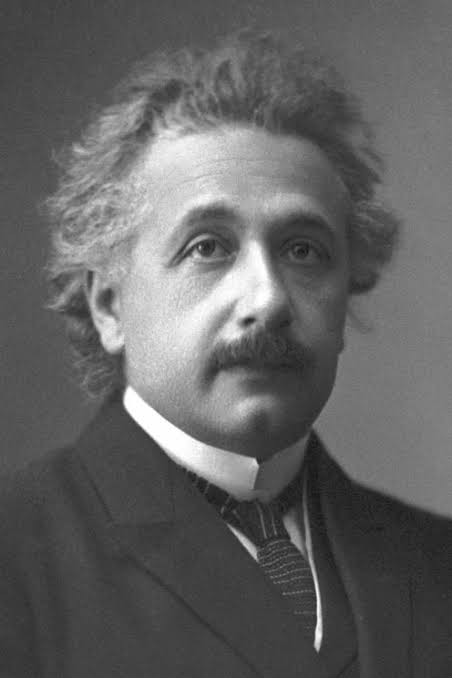
| Version | Summary | Created by | Modification | Content Size | Created at | Operation |
|---|---|---|---|---|---|---|
| 1 | Atul Pandey | -- | 561 | 2023-09-08 19:38:34 | | | |
| 2 | Catherine Yang | -63 word(s) | 556 | 2023-09-11 04:40:35 | | | | |
| 3 | Kadir Mısıroğlu | Meta information modification | 558 | 2024-02-21 10:43:14 | | |
Video Upload Options
1. Introduction
Albert Einstein, born on March 14, 1879, in Ulm, Germany, is widely regarded as one of the most brilliant scientists in human history. His groundbreaking contributions to physics revolutionized our understanding of the universe and earned him worldwide acclaim. Einstein's life and work remain a source of inspiration and fascination, making him an iconic figure in the realm of science and beyond .
2. Early Life and Education
Albert Einstein was born to Hermann and Pauline Einstein in a middle-class Jewish family. His early childhood was marked by curiosity and an inquisitive mind. At a young age, he displayed an extraordinary aptitude for mathematics and physics, which foreshadowed his future achievements.
In 1896, Einstein enrolled at the Swiss Federal Polytechnic in Zurich, where he graduated in 1900 as a mathematics and physics teacher. Despite facing challenges in finding employment as a professor, he worked as a patent examiner at the Swiss Patent Office, which allowed him ample time to explore theoretical physics independently.
3. The Annus Mirabilis Papers
In 1905, Einstein published four groundbreaking papers that reshaped the course of physics:
1. The Photoelectric Effect: He explained the phenomenon where light striking a material surface releases electrons, which laid the foundation for quantum mechanics.
2. Brownian Motion: Einstein provided mathematical evidence for the existence of atoms and molecules by explaining the erratic motion of particles suspended in a fluid.
3. Special Theory of Relativity: This theory, encapsulated in the famous equation E=mc², introduced the concept of spacetime and redefined our understanding of time and space.
4. The Equivalence Principle: Einstein's work on gravity led to his theory of general relativity, which posited that massive objects curve spacetime, affecting the motion of objects within it.
4. General Theory of Relativity
Einstein spent the next decade refining his general theory of relativity, which he published in 1915. This theory explained gravity as the curvature of spacetime, challenging Newtonian physics. The 1919 solar eclipse expeditions, led by Sir Arthur Eddington, confirmed his predictions, catapulting Einstein to international fame.
5. Nobel Prize and Later Life
Surprisingly, Einstein was not awarded the Nobel Prize for his theory of relativity but for the photoelectric effect in 1921. Throughout the 1920s and 1930s, he continued to develop his ideas, contributing to quantum mechanics and advocating for pacifism and civil rights.
6. Fleeing Nazi Persecution
As Adolf Hitler came to power in Germany, Einstein, who was of Jewish heritage, faced increasing persecution. In 1933, he emigrated to the United States, where he accepted a position at the Institute for Advanced Study in Princeton, New Jersey. He became a U.S. citizen in 1940.
7. Later Career and Legacy
Einstein spent the latter part of his life searching for a unified field theory to merge electromagnetism and gravity but did not succeed. Nevertheless, his work had a profound and lasting impact on science, inspiring generations of physicists.
Einstein passed away on April 18, 1955, leaving behind a legacy of intellectual brilliance, humanitarianism, and a commitment to advancing human knowledge [1][2][3][4].
References
- Pais, Abraham. "Subtle Is the Lord: The Science and Life of Albert Einstein." Oxford University Press, 1982.
- Isaacson, Walter. "Einstein: His Life and Universe." Simon & Schuster, 2007.
- Calaprice, Alice, ed. "The Ultimate Quotable Einstein." Princeton University Press, 2011.
- Stachel, John, ed. Einstein Miraculous Year: Five Papers That Changed the Face of Physics. Princeton University Press, 1998.

Location: Ulm





